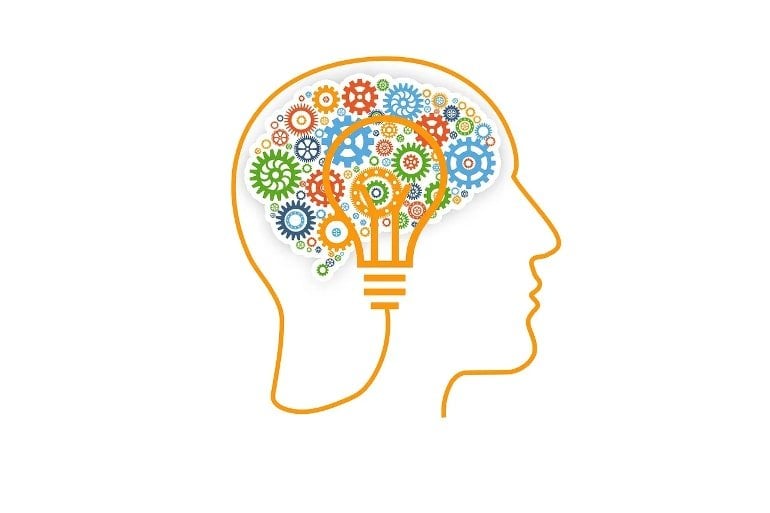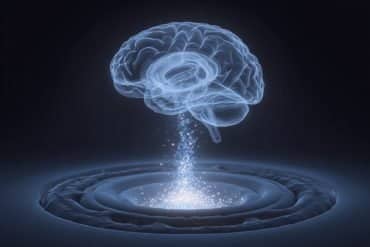Summary: Researchers identified molecular signatures of gestational inflammation that appear to be biomarkers for autism risk. The immune signatures were identified in both maternal blood samples during pregnancy and in umbilical cord blood from children later diagnosed with ASD.
Source: Columbia University
A large study by researchers at Columbia University Mailman School of Public Health and the Norwegian National Institute of Public Health has identified molecular signatures of gestational inflammation linked to the risk of developing autism spectrum disorder (ASD). These findings, which provide insights into abnormal brain development, could eventually lead to a test to screen for ASD at birth.
The study is published in the journal Molecular Psychiatry.
The new research aligns with growing evidence that the risk of ASD is increased by fetal exposure to inflammation. In earlier studies, the researchers linked ASD risk to prenatal exposure to maternal fever, and to influenza infection and herpes virus type 2 infection—two of many potential triggers for maternal inflammation and ASD.
In the new study, researchers analyzed the presence of 60 molecular markers of immune response, including cytokines and growth factors. Blood samples were collected during pregnancy (maternal mid-gestational blood sample) and at birth (cord blood) from 957 children, roughly half of whom were later diagnosed with ASD. The study linked ASD risk to groupings of inflammation-related molecules, with different groupings seen in boys versus girls.
Among the most predictive molecules were interleukins like IL1RA and IL4. Four molecules thought to be involved in fetal brain development were also linked to ASD risk in both sexes: TNFα, Serpin E1, VCAM1, and IL1β. Biomarkers collected at birth were only slightly less predictive than those collected during pregnancy.

“Our research suggests a period of vulnerability during gestation when inflammation can interfere with central nervous system development,” says first author Xiaoyu (Jason) Che, Ph.D., assistant professor of biostatistics in the Center for Infection and Immunity at Columbia Mailman School.
“We found immune signatures in mid-pregnancy blood samples from mothers and in umbilical cord blood from children later diagnosed with autism that correlate with responses to infection, and molecules important for the development of the brain and its blood supply,” says study co-first author Mady Hornig, MD, associate professor of epidemiology at Columbia Mailman School.
“This work illustrates the unique power of prospective cohorts for elucidating the roots of disease,” says corresponding author, Ezra Susser, professor of epidemiology and psychiatry.
“This paper is the culmination of more than 20 years of data and sample collection and analysis in collaboration with our colleagues in the Norwegian Institute of Public Health. Our future research will focus on finding the triggers for inflammation and links between those triggers and genetic susceptibility,” said W. Ian Lipkin, John Snow Professor of Epidemiology and professor of neurology and pathology.
About the Autism Birth Cohort (ABC) study
The Autism Birth Cohort (ABC) study was conducted within a large Norwegian cohort of more than 100,000 children who have been followed since before their birth. ABC is a joint effort of the Norwegian National Institute of Public Health (NIPH) and Columbia Mailman School investigators, overseen by a steering committee of four people: Camilla Stoltenberg and Per Magnus in Norway; and Ian Lipkin and Ezra Susser at Columbia. “The ABC study is unique for the scope, depth, and breadth of both biological and social data on ASD,” notes Susser.
About this ASD research news
Author: Press Office
Source: Columbia University
Contact: Press Office – Columbia University
Image: The image is in the public domain
Original Research: Closed access.
“Maternal mid-gestational and child cord blood immune signatures are strongly associated with offspring risk of ASD” by Xiaoyu Che et al. Molecular Psychiatry
Abstract
Maternal mid-gestational and child cord blood immune signatures are strongly associated with offspring risk of ASD
Epidemiological studies and work in animal models indicate that immune activation may be a risk factor for autism spectrum disorders (ASDs).
We measured levels of 60 cytokines and growth factors in 869 maternal mid-gestational (MMG) and 807 child cord blood (CB) plasma samples from 457 ASD (385 boys, 72 girls) and 497 control children (418 boys, 79 girls) from the Norwegian Autism Birth Cohort.
We analyzed associations first using sex-stratified unadjusted and adjusted logistic regression models, and then employed machine learning strategies (LASSO + interactions, Random Forests, XGBoost classifiers) with cross-validation and randomly sampled test set evaluation to assess the utility of immune signatures as ASD biomarkers.
We found prominent case–control differences in both boys and girls with alterations in a wide range of analytes in MMG and CB plasma including but not limited to IL1RA, TNFα, Serpin E1, VCAM1, VEGFD, EGF, CSF1, and CSF2. MMG findings were most striking, with particularly strong effect sizes in girls. Models did not change appreciably upon adjustment for maternal conditions, medication use, or emotional distress ratings.
Findings were corroborated using machine learning approaches, with area under the receiver operating characteristic curve values in the test sets ranging from 0.771 to 0.965.
Our results are consistent with gestational immunopathology in ASD, may provide insights into sex-specific differences, and have the potential to lead to biomarkers for early diagnosis.







